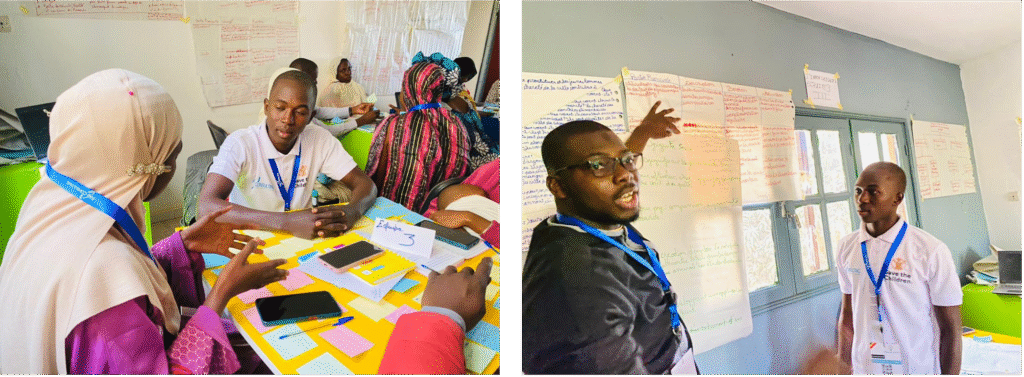
The Problem and Motivation Behind:
“The problem we’ve identified is that, as students living on campuses, we are confronted with insufficient food options that are not adapted or affordable. This affects us nutritionally and financially, which in turn impacts our living conditions and academic results.” – Diawara Issiaka
University students living on campuses in Mali face a common challenge — lack of affordable and nutritious food. Many students have limited budgets, and the food options available on campus are often unhealthy, repetitive, and expensive. This issue not only impacts their health but also affects their academic performance and overall well-being.
Diawara Issiaka (22-year-old) and his team experienced this problem firsthand during their time on campus. They noticed that many of their peers struggled to find balanced meals at reasonable prices. The lack of variety in campus food made it even harder for students to maintain a healthy lifestyle.
The Innovative Solution:
“We want to set up restaurants on campuses to provide healthy food to students. Thanks to this initiative, they will also benefit from health advice and learn how to use their limited money to eat healthily.” – Diawara Issiaka
When Diawara and his team joined the Youth Innovation Lab, they choose to address the problem of lack of affordable and nutritious food at their composes. Through a Design Thinking process, they began by conducting informal discussions with fellow students to understand their challenges with accessing affordable and nutritious food on campus. Next, they brainstormed a possible solution for offering affordable and healthy food services on university campuses. Their solution, Djiguifa Innov involved setting up student-friendly restaurants that offer a wide range of nutritious meals at reasonable prices. In addition, the initiative includes the development of a web application to manage orders, provide meal planning tips, and give students access to health advice.
The affordable campus restaurants will provide nutritious and low-cost meals, serving a wide variety of foods tailored to students’ preferences and dietary needs. Additionally, the restaurants will incorporate health advice to help students make informed food choices, promoting healthier eating habits. Additionally, the web application for meal management will support students in maintaining a balanced diet. This interactive app will allow students to plan their meals based on their budget and nutritional value, access health tips to make better food choices, and place orders directly to reduce wait times.
They then moved to the prototype stage, creating a draft version of the restaurant menu and a basic app layout to visualise the concept. Finally, during the test phase, they shared the concept with students to gather feedback, which helped them refine the idea. The response from students was positive, as they expressed their enthusiasm and support for a solution that addressed their daily struggles.
Lessons Learned and Addressing Challenges
“The lab taught me how to work as a team member and how to set up community-based projects. I realised that together, we can go much further than when working alone.” – Diawara.
The Youth Innovation Lab provided training sessions that helped Diawara, and his team understand the importance of team collaboration and community engagement. Before attending the lab, Diawara admitted to having a more individualistic mindset, but through the sessions, he learned that working together amplifies impact. Nonetheless, the primary challenge for them has been lack of funding. Despite having a clear plan, the team needs financial support to launch the first restaurant and develop the app. They estimate that they will need support not only for the restaurant setup but also for awareness-raising activities to promote the project on campus.
Despite not yet implementing the project, they have learned that preparation and community involvement are key. They continue to refine their project plan and seek partnerships with local stakeholders who can support their vision.
Next Steps and Future Aspirations:
“Our aim is to make Djiguifa Innov a long-term solution, not just a short-term project. We believe that providing healthy and affordable food on campus will improve students’ quality of life and help them succeed academically.” – Diawara Issiaka
Diawara’s ultimate goal is build a self-sustaining network of campus restaurants across Mali. The next steps include:
- Launching a pilot restaurant on one campus to demonstrate the concept’s viability.
- Completing the mobile app to streamline meal planning and orders.
- Building partnerships with local food suppliers to keep costs low.
- Developing educational materials on healthy eating for students.